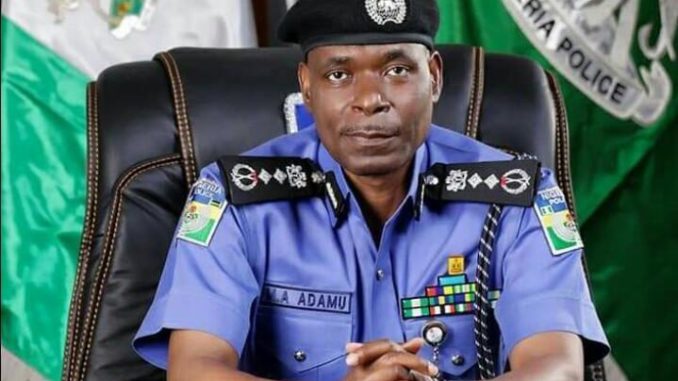
PREDICATING the need for reform on worsening insecurity, the Federal Government is pressing ahead enthusiastically with the implementation of community policing in the country. Shortly after the horrific killing of Funke Olakunri, 58, on a highway in Ondo State, Vice-President Yemi Osinbajo had floated the initiative in a congregation of traditional rulers in Osun State. To show the government’s determination, the Inspector-General of Police, Mohammed Adamu, unfurled some details in Abuja a week later. Globally, community policing is an integral component of policing in federal jurisdictions, but the Muhammadu Buhari administration is going about it the wrong way.
For the Vice-President, the gruesome murder of Olakunri, daughter of Afenifere leader, Reuben Fasoranti, by suspected Fulani herdsmen, was the tipping point. In his engagements with stakeholders in the South-West, he promoted community policing as the panacea for the exacerbating wave of killings and kidnapping. Along with highway robberies, this spectre has rendered the region unsafe for travellers and caused farmers, whose crops are being destroyed by cattle, untold losses.
To douse the raging tension, Osinbajo stated that community policing was inevitable. “In the interim, the Federal Government has approved community policing, as an option,” he said. Simultaneously, the IG stated that the scheme, in which 40,000 community police officers would be recruited as Special Constables, was introduced under the provisions of Section 50 (1) of the Police Act 2004. On the average, each of the 774 Local Government Areas will have 50 of such officers, who would be hired based on residency. “In addition, 1,300 CPOs will be drawn from professional bodies like the academics, road transport unions, artisans, traders associations, religious bodies, women unions, and youth organisations,” Adamu stated. This, in itself, is a complex arrangement.
The 50 CPOs under consideration for each LGA is insufficient to tame the monstrous crimes in our communities. Some states have many towns and villages. There are large LGAs like Borgu (11,267 km2), Baruten (9,749 km2), Mashegu (9,182 km2), Bali (9,146 km2) and Gashaka (8,393 km2). Numerically, it is implausible to assume that just 50 CPOs will police these towns, villages and LGAs successfully, and also combat kidnappers and Islamist insurgents on the highways.
Thus, community policing, as conceived by the Buhari government, is just sidestepping the main issue in the reform – state police. Having tried other measures, including the deployment of troops to stem the ugly tide without success, this is just another hasty policy, because, for Nigeria, there is really no short cut to state police.
Illogically, the community-policing model puts the cart before the horse. The government might not admit it, but it is running round in circles because it is not ready to overhaul the untenable security architecture, whose Achilles’ heel is its centralisation.
Ironically, some in government have acknowledged this. Osinbajo, for instance, has repeatedly argued that security arrangements work more potently with state police in a federal polity. In November 2018, the Vice-President had argued along this line: “On the security question, we must establish state police; there’s no question, at all, about that. Today, the challenges that we are facing are enormous. A federation of 200 million people and a state cannot control its own police; there must be state police.” During his last engagement in Lagos, he reaffirmed this, saying, “The challenge is dynamic and our approach must also be dynamic. That is why I believe that state police in a large and diverse federation is an imperative.”
This is the kernel of the matter. The current structure has imploded in our faces. Unfortunately, the political will to dismantle a system that has delivered fear, kidnapping, terrorism and bloodshed is evidently absent. The rigmarole shows that Nigeria is federal only in name. To resolve its security nightmares, it must be willing to apply the true and tested model in other federal systems. Fundamentally, it is to decentralise policing, ceding its control from the centre to the federating units (states, cantons, provinces or regions).
In the United States’ paradigm, there are five major types of police agencies, states the Britannica. They include the federal system, consisting of the Department of Homeland Security and the Department of Justice, the Federal Bureau of Investigation, the Drug Enforcement Administration, the Secret Service; and the police forces and criminal investigation agencies established by each of the 50 states of the union. In Australia, each of the six states has its own police force; in Brazil, the police force of each state is under the authority of the state’s Secretariat for Public Security. Although police leaders are trained in part by the Indian Police Service, the various states and main cities have their own police forces with their own specific features. Nigeria cannot be different.
The Federal Government should stop playing politics, wasting time on state police and endangering the lives of the citizens. All the arms of government should collaborate and amend the constitution for the establishment of state police. Like in Canada, only willing states could undertake it; others can collaborate across their borders or remain within the federal police architecture in line with the recommendation of the 2014 National Conference.
In addition, it is essential that adequate safeguards are instilled into the law for state police to prevent the glaring abuse of the current system.
END

Be the first to comment